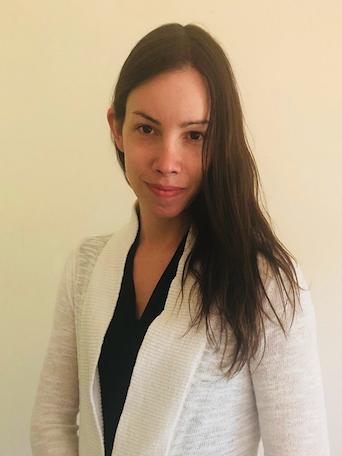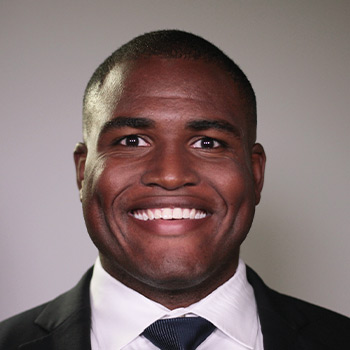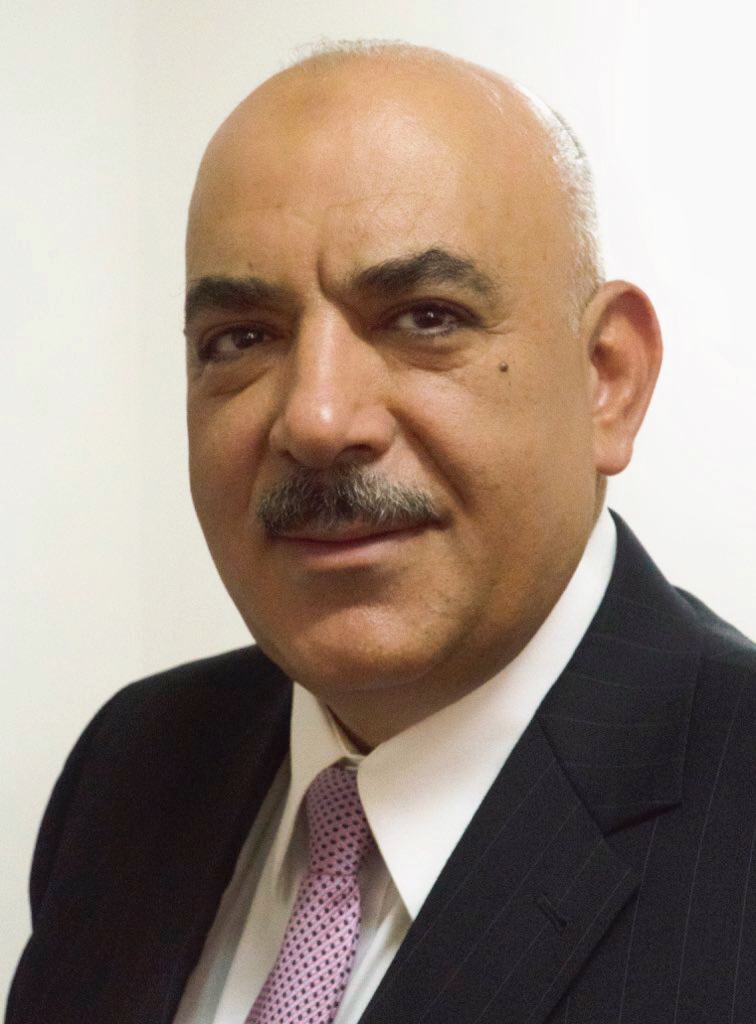Transcripts

Erik: Joining me now is Lyn Alden, founder of Lyn Alden Investment Strategy. Lyn produced a terrific slide deck to accompany today's interview. I strongly encourage you to download it as we will be referring to the charts and graphs that it contains throughout this interview. Listeners who find the download link in your research roundup email. Apologies if it may be delayed a couple of hours after the podcast this week due to some production issues. Please bear with us there. Once you've got it though, I think you're gonna love the graphs and charts that it contains. If you don't have a research roundup email, just go to our homepage macrovoices.com and click the button that says looking for the downloads. Lyn, it's great to get you back on the show, I know you've been writing quite a bit about a subject that's very much near and dear to my heart, which is crude oil and energy in general. Why don't we start with the big picture. What's on your mind with respect to energy. I don't want to taint it too much with my own views. And we'll get into some of those other views a little bit later on.
Lyn: Thanks for having me and happy to be here. And so energy is obviously one of the key things affecting all markets, not just obviously energy markets, but also impacting everything else, because energy touches pretty much everything in our lives, financially, and otherwise. And so you know, my view of the energy market over the past year or more has been that supply side issues are starting to come to the forefront. And that this is obviously going to cause significant inflationary pressures both for the energy sector directly and then also for the broader economy. And so, generally speaking, commodities go through these very large CapEx cycles. There's periods of time where you know, commodities are structurally over supplied, prices are low, nobody wants to invest. There even you know, in more recent terms, there could be other reasons why they don't invest like an ESG overlay onto those financial reasons. But for a variety of reasons, nobody wants to invest in the space. But then over time, if that not occurring, eventually you work down the existing supply, right? So wells start to run dry, demand starts to slowly creep up over time, until you go back above equilibrium. And so then you start to get rising prices and then more and more supply comes online. And some of those take many years, you know, for the bigger projects to bring online, until eventually they over build, you know, cause a period of oversupply and low prices again. They start the whole cycle again, and this is a pretty long term cycle. And so my contention for a while now has been that we're entering, you know, a decade of much tighter commodity supply in general and energy supplies specifically. And we're starting to see that manifest this year. And my view is that it won't be a straight line. So I'm not trying to say, you know, chart oil on a week by week basis and make those specific calls. It's more about the fact that, you know, in the years ahead, through ups and downs, that we're looking at structurally higher energy prices, most likely.

Erik: Joining me now is Jeff Snider, Chief Investment Strategist for Atlas Financial and author of the Eurodollar University. Jeff prepared a terrific slide deck to accompany this week's interview listeners, you'll find the download link in your research roundup email. If you don't have a research roundup email, just go to our homepage macrovoices.com. Click the red button that says, looking for the downloads just above Jeff's picture.
Jeff, we've had so many guests on the program talking about secular inflation. Inflation not being transitory expecting it to be persistent. And of course, that leads to all kinds of follow on predictions from there. I've been looking for contrary views, and I knew I could count on you for one with respect to the inflation call. So let's dive into your slide deck and go through the big picture of why you see this macro economy a little bit differently than the inflationists that we've spoken with.
Jeff: Well Erik, it's no wonder why so many people have thought that inflation is going to be a continuing problem because obviously it has already been a problem. Consumer prices have accelerated wildly as everybody knows, particularly in the energy markets over the last year. But for me, it was always a question of and we had this discussion last time it was on last year, I think, where was it actual monetary inflation? Is this really inflation? Or is this a transitory supply shock and I know people hate that word transitory because in the modern perception at least, attention spans being what they are, you don't associate with maybe a multi-month or even multi-year period with the word transitory. But yet, in macro timescales, time and again, we've seen throughout history that transitory can last a lot longer than maybe you think it is. So we start with the fundamental possibility of whether or not consumer prices were rising as being caused by excessive money printing, currency, whatever you want to call it, or through other reasons. And for me, the monetary system did not change at all in 2020 and 2021, despite the fact the Federal Reserve went nuts with quantitative easing. But the monetary system has been telling us all throughout the last couple of years that it was not inflation, that it was a transitory supply shock. And now the markets are all uniformly describing now in July of 2022 the downside of the supply shock rather than continuing secular inflation.

Erik: Joining me now is MI2 Partners founder Julian Brigden. Julian prepared an excellent slide deck to accompany this week's interview listeners. You'll find the download link in your research roundup email. If you don't have a research roundup email, just go to our homepage macrovoices.com. Look for the red button above Julian's picture that says, looking for the downloads.
Julian, it's been a long time. Like last time I spoke with you, you said something nobody else was saying, which is get ready, put your seatbelt on inflation is gonna get serious. And everybody thought you were crazy. What has happened as one of the people who saw this coming, how has it played out? And how's it gone differently perhaps than you were expecting?
Julian: So, I mean, to be honest, it's been more powerful than we thought. And more persistent than we thought. We wrote at the start of 2021, the first report, we wrote, I think the fifth of January or something 2021, that inflation would be the most important variable of the year and indeed, it was. But kind of we got to the beginning of ‘22 and end of ‘21, we were expecting some base effects to kick in. And then just things continued. And I think the problem is Erik is that we've started this process, should I think of sort of non-linearity, right? I mean, the world, we're very used to a world, companies, central banks, and it was interesting listening to the Sintra conference where we had Powell, Bailey, and Lagarde on. And it's really worth listening to, if your readers can listen to this. You know, they talked about the world structurally changing now, right? Structurally changing. And I think, we're so used to as market participants since the Great Moderation started in the mid 80s, this kind of period of relatively benign, relatively predictable, relatively forecastable, if you want to call it the nice sine wave around the long term trend of economic growth, where, your grower kind of two and a half and central banks come in and cap a little bit and we roll over to sort of half and then they cap it a little bit on the bottom. We kind of stay in this is predictable. So this increasingly volatile world where things just don't respond in the way that you had thought, right?
And even we who said we were extraordinarily aggressive on the inflation story, we're caught out by just how powerful these forces appear to be, because base effects should have started away on inflation starting really at the end of the last year, and didn't and so something else is totally going on. So then you have to sort of step back and go what is it? So is it companies just deciding after 30 years of never being able to push through price increases to go like, screw it, now we can jam through it? I think there's an element of that, right? Or is it just all these normal relationships that we assumed that would happen? Break down? I mean, there's a great chart. So as you can see from the next slide on page two, you can see this excess stimulus model, where you look at the breakout of inflation, right? And you can, you can take this thing back to 1926 I think, that's quite a long time, not even you and I have that old Erik. And you look at a range of typically inflationary tops being between max between like 5.4 and 6.4% base CPI in the US. If you break that, the lowest next print that we saw, was 9.4. And the average was over 13%. And there's been very few periods of that Erik. But the point is, it's material, right?
So things have just totally broken down and the world isn't acting normally. I think it was I said, I think that Sintra conference call was hugely important. Because all three central bank governors, all acknowledged that this concept that we are necessarily returning back to that nice benign world where you had globalization, high productivity, all of those factors weighing continuously on inflationary pressures, maybe over for quite some time. And I think that is material. So look, I can see some signs of benign inflation or should we say, peaking inflation, okay. In the US some, but I think there are, I don't think it's necessarily the case that it's a guaranteed and in fact, we've got some models that suggest and maybe I'm being a bit too cute, but they go back to the 1960s. But if I look at the size of the stimulus, and I think this is really the key point here, and you can look at that the next slide, and you can see that. You can see that if I look at the stimulus and the size, it was five times bigger than anything that we've seen in postwar history Erik and it suggests when you use it to try and forecast inflation, it doesn't see a peak until Q4. Right now, I don't want to get too cute on this. But you can see it's actually measuring what they call detrended core CPI. So is looking at the change over running baseline. So in actual fact, that peak is where it shows sort of five or six on the right hand side of the screen is actually a nine and a half. But the point is, is even if some of these other factors start to weigh in, I think we're looking at extraordinary inflation pressures and high sticky inflation pressures, probably well into Q4. And the implications for other assets are pretty damn clear, I'm afraid.

Erik: Joining me now is 42 Macro founder Darius Dale. Darius prepared a terrific and very extensive slide deck to accompany today's interview. Listeners, you'll find the download link in your research roundup email. If you don't have a research roundup email, just go to our homepage macrovoices.com. Look for the red button above Darius' picture that says looking for the downloads.
Darius, the last time that we had you on macro voices was January 13 of 2022. The S&P was at $4700 or so just a little bit off of its all time highs. Everybody was just singing the Goldilocks story of how everything was great. You actually used the word crash to describe what you thought might be coming for the stock market in 2022. I think you're the only guest in that timeframe that we've had who used that word. So biggest question in my mind is okay, you definitely get some credit for seeing that something was coming. But I think that what we've seen so far has been a very big sell off. But frankly, it's been pretty orderly. So is the crash that you were expecting. Did that already happen with the big sell off that we've seen or is the crash yet to come? And if so, how bad could it get?
Darius: Hey Erik, thanks for having me back on. And I really appreciate the very kind introduction. You know, I don't consider myself there was others making crash calls back then. But we certainly I believe we came to that conclusion through a variety of very rigorous and repeatable quantitative processes. And so, I'd love to unpack them in terms of what they're seeing today. Because obviously, you've either made money on the crash call or you didn't at this point.
Erik: Ok so think the crash is over then?
Darius: No, absolutely not. I think we're sort of, you know, let's call it inning five to six maybe in terms of the market cycle downturn. In terms of the market pricing in what we think are simultaneous slowdowns in liquidity cycle, growth cycle and profit cycle. I think and we can unpack these things in either order. But I think we're probably somewhere between inning four or inning five in the liquidity cycle downturn. I think we're somewhere similarly in inning four to five of the growth cycle downturn with a significant slowdown ahead of us still. And we're likely, somewhere between inning one and two of the profit cycle downturn. And I think the earnings recession is not something that should be discounted by the average investor, and in terms of materializing over the next several quarters.

Erik: Joining me now is Dr. Anas Alhajji, energy markets consultant and former instructor at the Colorado School of Mines at the University of Oklahoma and one of our favorite oil market experts. Anas, it's great to have you back on the show. It's been way too long. Let's start with the big picture of where things stand right now. A lot of people are wondering why OPEC hasn't done more to increase production in order to bring prices down. My take is OPEC is basically out of spare capacity and maybe doesn't want to admit that although they have admitted it to some extent. What's your take? What's going on here? What is the major factor that is keeping prices so elevated?
Anas: Thanks Erik, and it's really great to be on your show again. We got to look at the mix of economics and politics together when we talk about OPEC and OPEC+ and their decisions. As you know, we ended up with this OPEC+ since 2016, where 10 members including Russia, being added to OPEC. And that's why we ended up with OPEC+ which has 23 countries. It is led by Saudi Arabia and Russia. And this coalition is not only about changing oil production or oil market. The coalition between Saudi Arabia or the Gulf States and Russia is way way stronger than that. And we've seen it in recent months and there are many reasons for that. If you think about it, and if people are wondering why the Saudis and others in OPEC did not really take a strong stand against Russia, think about it this way, the Saudis have a problem in Yemen. And there were resolutions in the Security Council against the Saudis and who did the veto Russia, there was a resolution in the Security Council that the UN Security Council on climate change that would have destroyed the economies of the oil producing countries who did the veto vote, It was Russia. So in a sense all of a sudden, OPEC members and the GCC countries that the Gulf Cooperation Council in the Gulf have a veto power within the UN Security Council or they are not member of it. So why let Russia go when they have this power?
So there are really kind of course, there are other reasons though when it comes to climate change, carbon tax, how to stand to the extremists on climate change in Europe, etc. It is really Russia who can do that. And in fact, if you look around, you'll find out that Putin single handedly without intention has delayed all the climate change policies of Europe for at least seven, eight years. Which means that we have an additional oil demand, we have additional gas demand. That's not being counted in any outlook. And probably within the next few months, as we see the long term outlook coming out of the International Energy Agency, OPEC and the oil majors. We are going to see a revision, an upward revision to oil demand as a result of the failure of those policies simply because of Putin. So this coalition basically is a very important coalition. And that's why everyone was sticking to it. So they agreed to increase production by a certain amount, which was 400,000 at the beginning. And then when they changed the base later on at 432,000 barrels a day every month. And they've been going with this and sticking to it as they go. When Putin went to Ukraine, there was pressure on those countries to increase production. If they increase production, then they are going to anger Putin and then the coalition will collapse. They already invested a lot of money and a lot of capital, political capital in it, they don't want to lose that. So they decided to stick to the plan, increasing production and that's it.
All of a sudden about 10 days ago, when they had probably more than that, when they had the meeting, they decided to forward the end of the agreement. The agreement will end at the end of September where they can recover all the production cut. So they can go back to pre-COVID production by the end of September, at least in terms of ceiling not in terms of actual production and that's what the agreement was. All of a sudden, they decided to end it at the end of August. If they ended at the end of August. Then what you're going to do with the production of September, what they did is they took the increase in September, divided it into two halves and they added one half to July, one half to August and that increase the amount of the ceiling from 432 to 648. There are many explanations for that. Some people think they are extending the olive branch to President Biden that look we are we are already increasing production. Look what we did. At the same time, they were expecting Biden to visit but they did not know when. But if he's going to visit in July as planned right now, because he's supposed to be in Saudi Arabia on the 15th and the 16th of July. By the time they increase production, it will be September. So it makes perfect sense. If they want to increase production in September, because they are free, they are no quota in September so they can really extend an olive branch to Biden and increase production. The only thing is most of that production is not going to see the market simply because we are talking about production, we're not talking about supplies. We are talking about production, we're not talking about exports. Summer demand for oil increases in those countries because they need additional power generation to meet the cooling demand. And this does not apply only to the Gulf nations that apply to nations in North Africa such as Algeria for example, or nations in Latin America or other places they need the extra demand. Of course, there is winter on the other side. But the idea here is there is extra demand and as domestic demand, so their exports may not increase at all, although they are increasing production. Do they have the capacity to increase production? Yes, they still have between UAE, Saudi Arabia, Kuwait, and Iraq, they probably still have about 1.6 million barrels a day of what we call effective production capacity, which means that they can bring online within 90 days and sustain it. So we still have about 1.6 million barrels a day of spare capacity.
MACRO VOICES is presented for informational and entertainment purposes only. The information presented in MACRO VOICES should NOT be construed as investment advice. Always consult a licensed investment professional before making important investment decisions. The opinions expressed on MACRO VOICES are those of the participants. MACRO VOICES, its producers, and hosts Erik Townsend and Patrick Ceresna shall NOT be liable for losses resulting from investment decisions based on information or viewpoints presented on MACRO VOICES.
